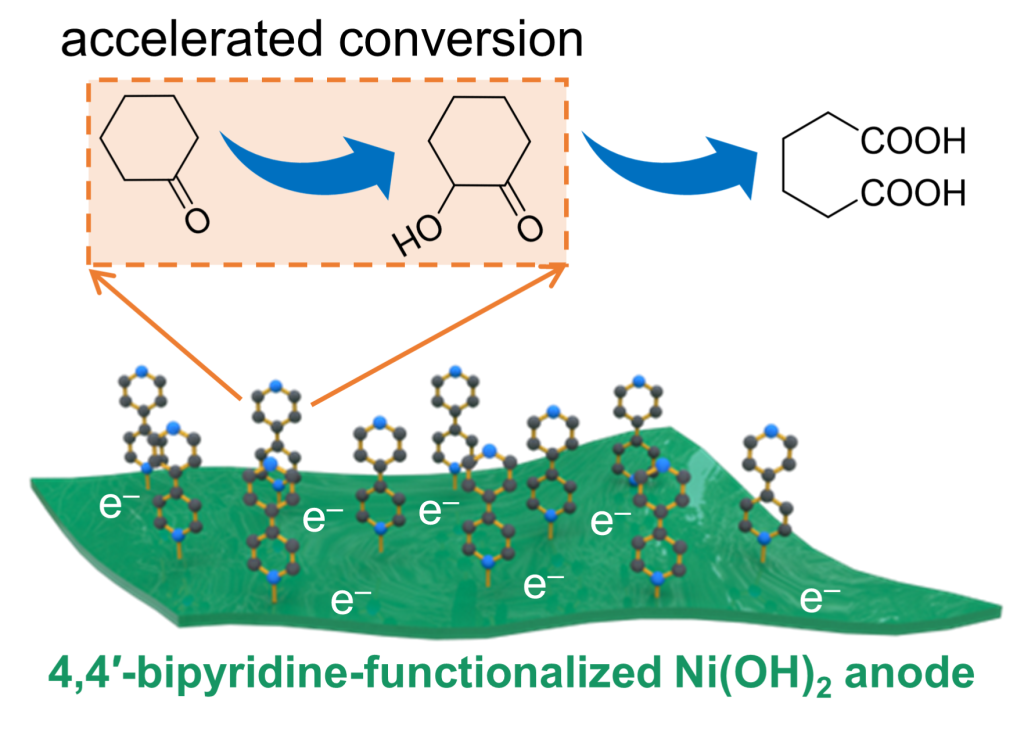Molecular functionalization offers a promising strategy for designing efficient heterogeneous catalysts, as it allows precise control over both the electronic and geometric characteristics. Rui investigates the use of molecular functionalization to enhance the performance of nickel hydroxide (Ni(OH)2) electrodes for the electrosynthesis of adipic acid—a sustainable alternative to the conventional industrial process that relies on thermochemical oxidation of cyclohexanone/cyclohexanol (KA oil). She found that modifying the Ni(OH)2 electrode with 4,4′-bipyridine (Bipy) results in a threefold increase in productivity compared to the unmodified electrode, achieving an impressive adipic acid yield of 90%. The Bipy molecule plays a dual role—acting as a substrate reservoir that concentrates cyclohexanone near the electrode surface, and serving as a electronic modulator to optimize the Ni active sites. This combined effect facilitates formation of the key intermediate (2-hydroxycyclohexanone), and significantly accelerates the conversion of cyclohexanone/cyclohexanol. These findings highlight the potential of functionalizing hard solid catalysts with soft molecular ligands, and a wider scope of electrooxidation reactions are awaiting being explored.
Congrats to Rui for the dedicated hard work, and awesome teamwork with our experimental and computational collaborators!
Link: https://pubs.rsc.org/en/Content/ArticleLanding/2025/SC/D5SC05036G

